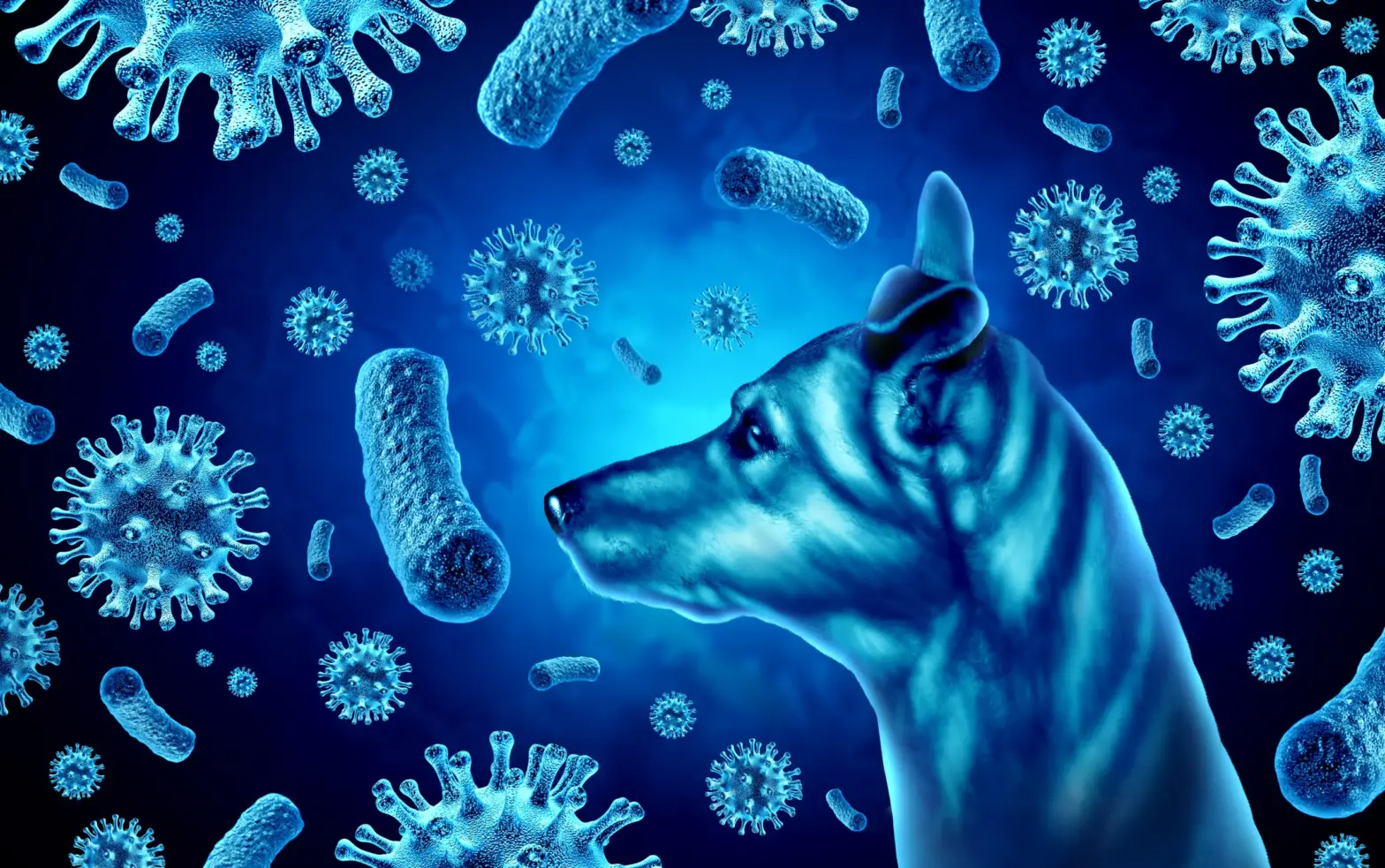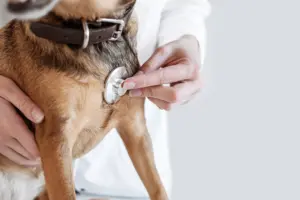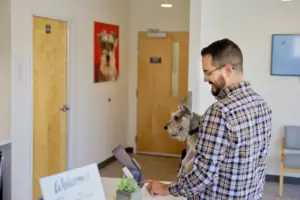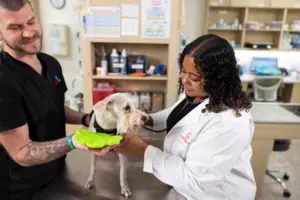A new “mystery dog illness” (aka canine respiratory illness) has recently emerged in the United States and appears to be spreading from state to state. Unfortunately, inaccurate and anecdotal information is also spreading and creating fear, panic, and a sense of helplessness. At UrgentVet, we recognize and understand the unease of a mystery illness, but we urge dog owners to be cautious and turn to education—relying on what we know and not fixating on what we don’t—to protect their canine companions.
What we know about the illness
The recent dog respiratory illness is presumed to have originated from an outbreak in Oregon in late summer 2023, when the state’s agricultural department noted an uptick in unusual dog respiratory illnesses, although smaller but similar outbreaks have previously been noted in other states. Veterinarians admit this is not unusual—like human respiratory pathogens, such as the flu, infectious viral or bacterial strains and their virulence can vary from year to year and cause periodic outbreaks or hotspots in certain regions.
While the new illness initially presents with signs similar to well-known respiratory pathogens that cause kennel cough, collectively known as the Canine Infectious Respiratory Disease Complex (CIRDC), the new illness causes lingering signs, including a cough that persists as long as six to eight weeks, and resists traditional treatments. Most frightening for dog owners is that in a small subset of affected dogs, the illness has rapidly progressed to acute antibiotic-resistant pneumonia and secondary infections, which have been fatal in some cases.
Although they are not certain about the details, experts believe the illness is primarily transmitted by respiratory secretions (e.g., coughing, sneezing, contact with saliva and eye or nasal discharge) and close contact with infected dogs.
Ongoing veterinary research provides clues for future treatment
Various veterinary schools and research labs across the country are currently working together to determine the primary cause of the illness. Once experts know this, they hope that a more targeted and successful treatment can also be identified. For now, researchers at the University of New Hampshire Veterinary Diagnostic Laboratory and the Hubbard Center for Genome Studies have isolated an unfamiliar, well-hidden, and resistant bacteria that may be to blame for the illness severity and its elusive nature.
Signs to watch for in your dog
The new illness presents with relatively generic respiratory signs that, unfortunately, owners can easily overlook. Known signs include:
- Mild or persistent cough
- Eye or nasal discharge
- Appetite loss
- Fever
What to do if your dog is showing respiratory illness signs
If your dog is showing any of these signs, contact your regular veterinarian or UrgentVet for after-hours care. While we strongly advise seeking prompt veterinary attention, you must stay calm and avoid panic. These signs can indicate a myriad of other known respiratory illnesses, as well as completely unrelated health conditions.
Until your veterinary appointment, minimize risking exposure to other dogs by taking precautions, including:
- Keeping your dog at home — Avoid dog parks, day care, grooming visits, and other areas where dogs congregate.
- Separating the symptomatic dog from other pets — Because transmission methods are still uncertain, isolation is the best way to reduce pathogen transfer between dogs.
- Disinfecting shared items — Clean bowls, toys, and other communal pet supplies thoroughly and avoid sharing food or water among pets.
- Following your veterinarian’s instructions — When you arrive for your veterinary appointment, follow any specific instructions about where or how to enter the building and avoid walking your dog in common areas.
How to reduce your dog’s respiratory illness risk
As experts work to understand this mysterious illness, veterinarians recommend that dog owners follow established disease prevention strategies to help minimize illness risk. These basic preventive measures are simple, proven methods for minimizing germ transfer and, hopefully, they will keep more dogs safe from all respiratory illnesses—known and unknown. The measures include:
- Updating your dog’s vaccines — Although current respiratory vaccines do not prevent this illness, they may reduce its severity and your dog’s risk for secondary respiratory illnesses. Check your dog’s vaccine records and update any respiratory vaccines that are due or overdue, including Bordetella, parainfluenza, and canine influenza.
- Monitoring your dog’s behavior and appetite — Vigilance and quick intervention are key to ensuring dogs receive timely care.
- Avoiding high-traffic dog areas — Dogs who gather in large numbers or for prolonged periods are at increased exposure risk.
- Not allowing your dog to eat or drink from shared bowls — Close contact with infected dog saliva or eye or nasal discharge may lead to illness.
- Keeping your sick dog at home— If your dog is coughing or showing other signs, no matter how vague, do not take them to areas where they may spread the illness to healthy dogs.
- Using caution when boarding your dog — Consider boarding alternatives, such as in-home dog sitting, to minimize your dog’s exposure. If you must board your dog at a kennel or pet resort, ask the facility supervisors about their dog handling and disinfection protocols.
- Washing your hands after interacting with unfamiliar dogs — Whether the illness can live on other surfaces is not yet known, but handwashing is a good universal precaution that should be practiced year-round.
- Consulting reputable information sources for illness updates — Follow UrgentVet and your regular veterinarian on social media for the latest and most accurate illness information.
Although this mystery illness is largely still not understood, being attentive to your dog’s health is always important. Stay updated on their routine wellness care and contact your regular veterinarian or the nearest UrgentVet location immediately if you notice any suspicious illness signs.





